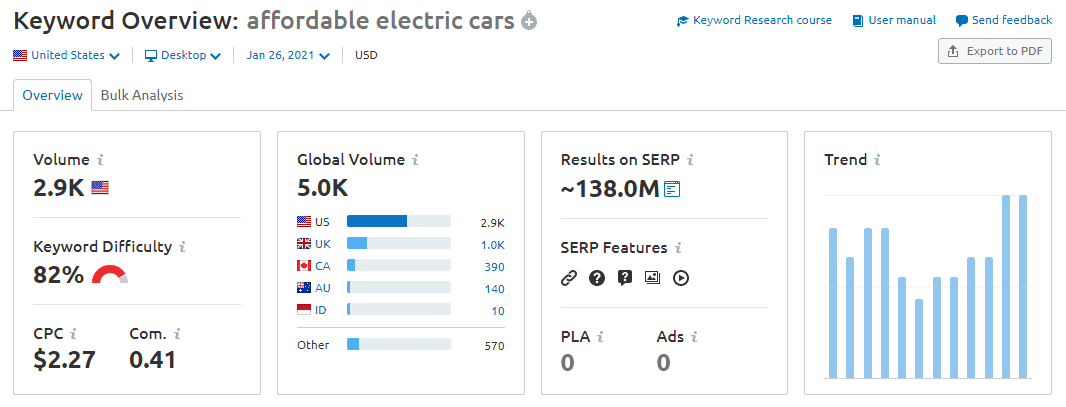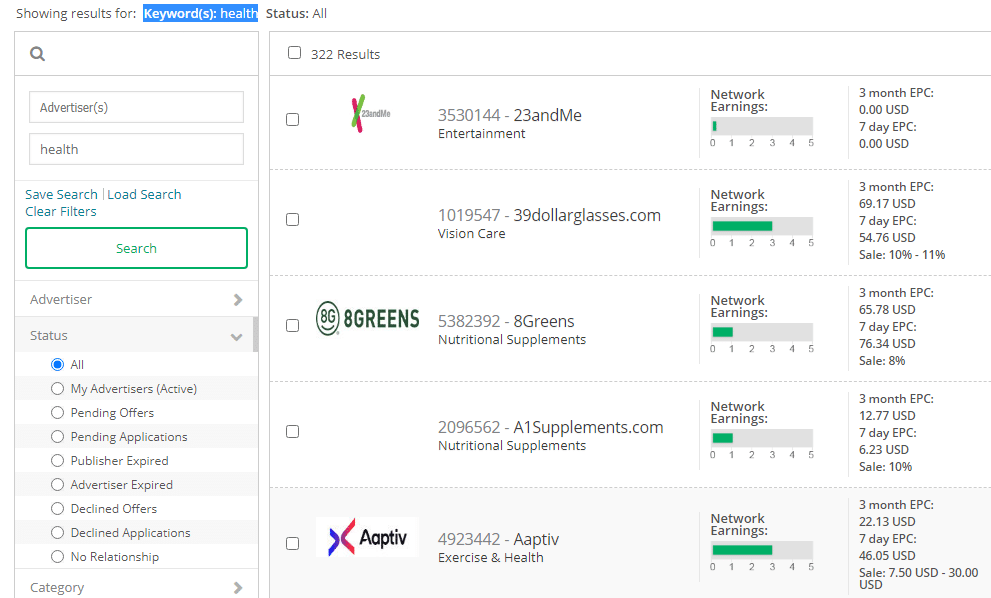Let’s admit it: Even if we start blogging (or vlogging) as a hobby, eventually we will have to monetize it. As a content creator, you might incur a variety of expenses – such as recurring domain registration and hosting charges, including expenses on themes, plugins, web development, equipment and marketing. That’s a lot if calculated annually! It is therefore important to ensure that the content / niche you’re investing in is profitable enough to make your blog sustainable. In this post, I will share a step-by-step guide on how to find a niche for blog and also tips on how to make sure that it is profitable?
Basics first: What is a niche?
According to Oxford dictionary: A niche is a specialized segment of the market for a particular kind of product or service. Didn’t understand? Let me explain with some simple examples.
| Parenting | Traveling | Technology | Finance |
|---|---|---|---|
| Food for toddlers | Budget travel | Mobile reviews (Android/iOS) | Equity Investing |
| Preschool rhymes | Adventure travel | PC tips | Retirement planning |
| Maternity care | Wedding destinations | Software reviews, gadgets, and tech how-to | Tax saving tips |
Importance of finding a niche for your blog
A niche gives meaning to your blog and helps you stand out with your own unique specialty and skill sets. There can be four key benefits of having a well-defined niche for your business:
- It gives a definite direction to your blog. When you have settled for a niche, it will guide all your efforts in one direction. For example – Suppose you have a passion for electric cars, and that you have been driving one since the last 5 years. With this passion and experience, suppose you create a blog with name – ‘Turbo Charged’. Now all your efforts – creative thinking, ideas, content creation and marketing will be focused in this direction.
- Having a niche helps you attract a targeted pool of visitors. By the word targeted, I mean, these people will be very keen and interested in everything you put on your blog or YouTube channel.
- A well-defined niche brings better opportunities to make money on your blog by connecting you with the right advertisers, sponsors, brands, and businesses. For example – A person who is writing specially on ‘Electric cars’ is more likely to land an attractive partnership offer from ‘Tesla’ than a person who is writing everything about autos in general.
- Having a niche improves the visibility of your blog in organic search – especially Google! Niche articles are easier to optimize and enjoy a high ranking on organic search results.
How to find a niche for your blog / vlog?
Now that we know how important it is to choose a niche and stick with it, now let’s understand the steps involved in choosing one.
Follow the below mentioned 5 steps approach (in their particular order) to find the best profitable niche ideas for your blog:
Step 1: Choose a topic that YOU are passionate about
Passion is energy. Feel the power that comes from focusing on what excites you.” — Oprah Winfrey
Figure out – What do you love? This can be anything which you enjoy doing, something which excites you, fills you with passion, or something on which you could spend hours working tirelessly! This should ideally be your first step to find a profitable niche.
But why is passion so important? Can’t you just select any niche which is profitable and start your online business right away? Yes, you definitely can. But if your passion/love for the niche is missing, you cannot scale much far. For example – ‘Car Insurance‘ is one of the high profit niche. But I just don’t have the passion for it. So even if I pick it deliberately, I am likely to take it as a burden. In the long run, I may even run out of ideas to post new articles and videos.
Remember: Your passion is your inner driving force which can bring you a truckload of creative ideas and can keep you motivated for YEARS – without you feeling the burn-out.
Step 2: Assess your skills and experience
Once you have figured out your passion, find out whether you have the required skills or necessary practical experience to get started with your profitable niche idea?
Why is your experience important? This is because your experience can only help you establish yourself as an authority figure in your desired niche. When you share something from your experience, people recognize your authority. They begin to trust your work and slowly turn into your loyal fans or even customers.
Step 3: Look at the level of public interest (search volume)
No business can survive without customers.
Your passion and experience will help you create epic content on your blog, but how will you ensure that you have created something which people are really interested in? How many people do you think you can attract to your blog? This is where you need to find out the search volume for your targeted niche keywords. Organic search traffic is still the number one source of traffic for a huge number of websites on the internet. And… with over 86% of the worldwide search market share, Google is still people’s number one (or maybe default?) choice for searching the web.
I therefore recommend using Google keyword planner tool (a free tool provided by Google) to find out the approximate search volume for your desired niche keywords. Higher search volume for your keywords means there is more demand for the niche you have chosen. Let’s understand the concept with this quick example:
Suppose I am planning to start a review website on ‘Affordable electric cars’ – where I plan to review all affordable electric cars in the world. To assess the popularity of this niche, I head over to the Keyword Planner tool and do some quick keyword searches related to the major head key-terms like – ‘Affordable electric cars’, ‘Electric car reviews’, etc.

According to this data, up to 10,000 average monthly searches are being made for the key-phrase – ‘Affordable electric cars’ in the US. And… up to 1000 searches are being made for the key-phrase – ‘Electric car reviews’. So overall, we can infer that there is a considerable search volume for my desired niche idea.
Step 4: Choose a niche with low competition
The next step is to find out the level of competition for your desired niche idea. To increase your visibility on Google, you would obviously want to choose niche keywords with low competition. As you might have seen, the Google keyword planner tool also gives detail about the level of competition for keywords. But this is from the point of view of advertisers – not the content creators. I therefore recommend you to use Semrush Keyword Magic tool to find out the most accurate data related to ‘Keyword Difficulty Index’

The best part is that it not only shows the keyword difficulty but also reveals a lot of interesting data like average search volume, past trends, average Cost-per-Click value of keywords, and a list of related keywords.
Step 5: Assess the profitability of your niche keywords
The last step is to find out the monetization potential of your niche. The aim is to assess how popular is your niche among advertisers and businesses? There are 3 ways to find out the profitability potential of your niche:
- Average Cost-per-Click – With Keyword Planner tool, you can easily find out what’s the average cost-per-click those advertisers are willing to pay for your desired niche keywords. Higher the cost, the better are your chances of making money through advertisements (direct or indirect)
- Advertisers on Affiliate Marketplaces – Affiliate marketing is another popular way to monetize your content. So, it’s important to make sure that your niche is covered adequately by companies looking for partners or affiliates. How would you find this? I would suggest searching for affiliate programs related to your ‘niche keywords’ on popular affiliate marketplaces like CJ or ClickBank. It’s easy. Look at this example:

- Sellers on e-commerce Marketplaces – Alternatively, you can also look at the depth of sellers on e-commerce marketplaces like Amazon, Walmart, or eBay. Just do a quick search for your main niche keywords, and it will show you a list of products being sold by various sellers. This provides an opportunity to get in touch with your preferred brands to explore all possible advertisement/partnership deals.
What’s your blog niche? And how did you find it?
How did you find a niche for your blog? How profitable is it? And how is it performing so far? Please share your thoughts and feedback in the comments below.
Disclosure: This post may contain affiliate links, which means I may receive a commission if you decide to click through and make a purchase, at no additional cost to you. Read more about this disclosure



It was worth!
Thanks for sharing this post, Abhishek.
I’m just beginning to start my new vlog on macro photography. This post is going to be super helpful. Bookmarked it for reference!
All the best 🙂
Nice post. One question: How about choosing a niche based on profitability and then developing the passion and skill sets?
Hey Sherryl, It is not necessary that you will develop passion for a niche that you choose based on profitability. However, if you choose something based on your passion first, profitability eventually follows the course.
Enjoyed reading. My niche is related to Ed-tech and I am confident that it has a very good growth potential.
Good luck, Kelsey!